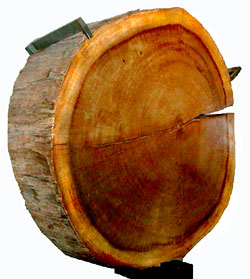Maori songs - Kiwi songs - Home
This is the anthem of Maori in the Central North Island.
Kua tae mai nei mātou
Ki runga tenei marae
Ki te whakarite ke karanga e
Ka tere rawa e, pipi whakaō
Ngā kupu onamata e
Ruia taitea! Ruia taitea!1
He mihi koutou atu e ngā iwi
e tau nei
O runga o te rohe ko Aotea e
Hi! Hi! Hi-ha!
Tongariro te maunga
Taupo te moana
Tūwharetoa maranga rā,
Tūwharetoa maranga rā.
Te tangi o te iwi
Kua riro ra,
Ko te mana motuhake kia ū
Tuku whakarere iho to mana Maori e
Puritia kia kaha e.
Ruia taitea! Ruia taitea!
He mihi koutu atu e ngā iwi
e tau nei
O runga o te rohe ko aotea e.
Hi! Hi! Hi-ha!
Tongariro te maunga
Taupo te moana
Tūwharetoa maranga rā.
Tūwharetoa maranga rā.
We've just arrived
at this marae
responding to the call
so quickly flowing forth, answering the call
of these words from ancient times
"Cast away the sapwood!"
A greeting to all you iwi
and to your partners
from within the Aotea boundaries.
Yeah! Too right!
Mount Tongariro is our sacred peak
and Lake Taupo our waterway
Tuwharetoa people arise
Tuwharetoa people arise.
Weeping for all those
who have departed
Standing firm for your autonomy
Suddenly setting free your Maori pride
Holding on to your strength
...let the heartwood remain!
A greeting to all you iwi
and to your partners
from within the Aotea boundaries.
Yeah! Too right!
Mount Tongariro is our sacred peak
and Lake Taupo our waterway
Tuwharetoa people arise.
Tuwharetoa people arise.
1 Ruia taitea
"Ruia taitea, ruia taitea; kia tu ko taikaha anake."
Shake off the soft white sapwood; let nothing but the strong heartwood stand here.
During the time of Te Arawa ariki Te Roro-o-te-rangi, conflict developed between some of his hapu and Ngati Tuwharetoa. (Te Arawa were near Lake Rotorua and Tuwhatoa near Lake Taupo) Te Roro-o-te-rangi was thought to have insulted Tamamutu, the Ngati Tuwharetoa rangitira, so Tamamutu took a war party eastwards to Lake Rotorua.
Te Roro-o-te-rangi took a taua to the lake edge to intercept Ngati Tuwharetoa, where they discovered that they were completely outnumbered. Courageously he turned to his warriors and spoke these now-famous words, "Ruia taitea, ruia taitea, kia tu ko kaka, ko ahau anake." (in other words, 'Let those who are afraid leave now. If needs be, I alone will face the enemy').
Not one man backed away from the oncoming fight, still remembered as the Battle of Tawharakurupeti. In the next hour, Te Roro-o-te-rangi and almost all of his warriors were killed, except for his brother Tunohopu, who survived by skillfully fighting his way to the lake edge. He backed into the water, still fighting and despatching his enemies.
Tamamutu eventually called a halt to the onslaught, stating that such a brave man should never die because of superior numbers.
This proverb calls to mind the wood of a totara tree. The soft white sapwood on the outside of a tree trunk is called taitea; it decays quickly. But the strong wood inside of the totara is the taikaha. It does not decay. In canoe-making, the taitea was chipped off and only the taikahu used.
"Tai" usually has the meaning of "tides " in Maori. But here it seems to mean layers: tai-tea (white layers), tai-kahu (strong layers). Perhaps the incoming tides were seen as layers of water on the estury sands. Or maybe the rising sap in the taitea area of the stump of a felled tree was likened to a rising tide.
In this song the traditional values of the people on the central volcanic can be seen as the heartwood, while the decadent values of the people in the big cities surrounding them on the coastal plains are the taitea. Presumably the Ngati Poneke were going from Wellington to Turangi or Taupo for a kapa haka competitionOn record
1967, Ngāti Poneke, LP
(The record cover gives Kua tae mai nei matou/Carl Karena)
1968, Turakina Maori Girls College, LP
Webpage put onto folksong.org.nz website April 2012
